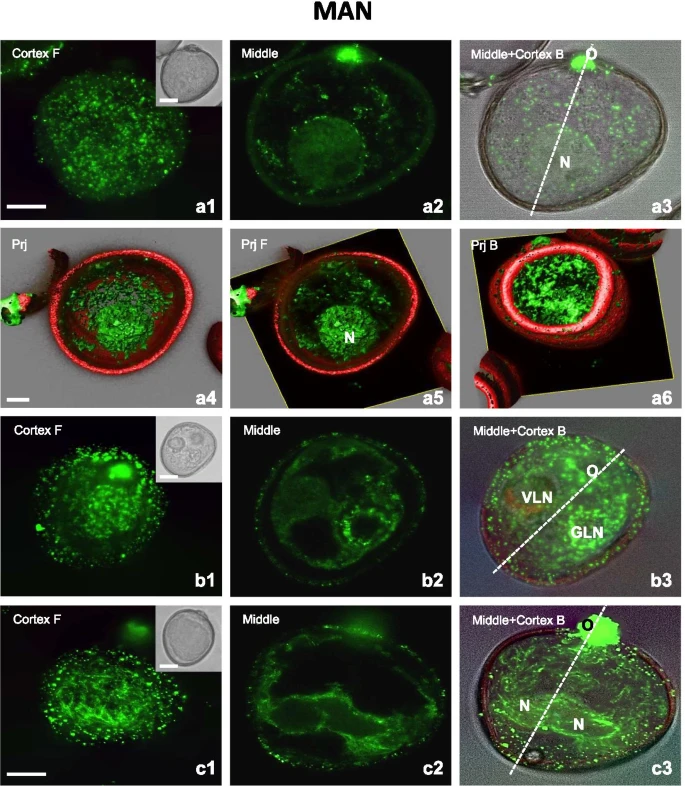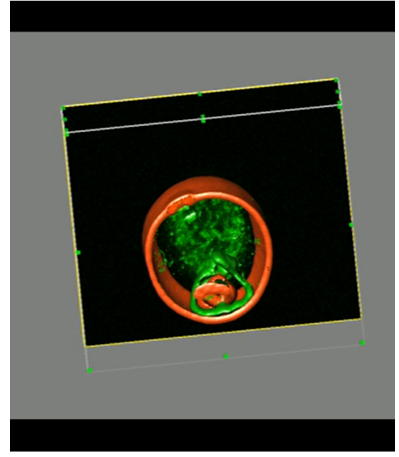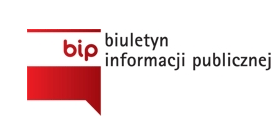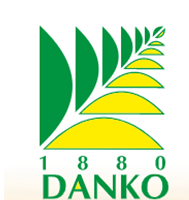Dr hab Ewa Dubas
Department of Cell Biology
(+48) 12 4253301 (wew./ext. 39)
e.dubas@ifr-pan.edu.pl
Publications
-
- Nowicka A.
- Milec Z.
- Krzewska M.
- Kopeć P.
- Springer A.
- Dubas E.
- Żur I.
- Transcriptomic identification of potential antioxidative enzyme regulators of the gametophytic-to-embryogenic switch in barley microspores.
- 2026.
- Frontiers in Plant Science, 16: 1735720.
-
- Springer A.
- Krzewska M.
- Dubas E.
- Kopeć P.
- Plačková L.
- Doležal K.
- Weigt D.
- Żur I.
- Induction of microspore embryogenesis in bread wheat by mannitol pre-treatment is associated with the disruption of endogenous hormone balance and substantial accumulation of auxins.
- 2025.
- BMC Plant Biology, 25: 370.
-
- Nowicka A.
- Kovacik M.
- Maksylewicz A.
- Kopeć P.
- Dubas E.
- Krzewska M.
- Springer A.
- Hoffie R.E.
- Daghma D.S.
- Milec Z.
- Pecinka A.
- Kumlehn J.
- Żur I.
- The transcriptional landscape of the developmental switch from regular pollen maturation towards microspore-derived plant regeneration in barley.
- 2024.
- The Crop Journal, 12: 1064-1080.
-
- Dubas E.
- Krzewska M.
- Surówka E.
- Kopeć P.
- Springer A.
- Janowiak F.
- Weigt D.
- Mikołajczyk S.K.
- Telk A.
- Żur I.
- New prospects for improving microspore embryogenesis induction in highly recalcitrant winter wheat lines .
- 2024.
- Plants , 13: 363.
-
- Żur I.
- Adamus A.
- Cegielska-Taras T.
- Cichorz S.
- Dubas E.
- Gajecka M.
- Juzoń-Sikora K.
- Kiełkowska A.
- Malicka M.
- Oleszczuk S.
- Skrzypek E.
- Szała L.
- Szarejko I.
- Zimny J.
- Doubled haploids: Contributions of poland’s academies in recognizing the mechanism of gametophyte cell reprogramming and their utilization in breeding of agricultural and vegetable species.
- 2022.
- Acta Societatis Botanicorum Poloniae, 91: 9128.
Projects
-
DWD/8/0369/2024,
Regulation of Glandular Trichome Metabolism by New Genomic Techniques (NGT) -
MRiRW nr 4,
Identyfikacja czynników warunkujących indukcję embriogenezy mikrospor u pszenicy zwyczajnej (Triticum aestivum L.) -
Tango2/340285/NCBR/2017,
Protocol for effective doubled haploids production by androgenesis for polish breeding materials of wheat (Triticum aestivum L.) -
2015/18/M/NZ3/00348,
Oxidative stress and its role in the regulation of embryogenesis in isolated microspore cultures of triticale (x Triticale Wittm.) and barley (Hordeum vulgare L.) -
MRiRW, nr 84,
Identification of factors determining the efficiency of doubled haploids production in rye (Secale cereale L.) through androgenesis and distant crosses
DIPLOMAS, DEGREES
| 2015- present | Associate Professor in Agriculture, Agriculture University, Kraków, Poland |
| 2007- | PhD in Biology, Jagiellonian University, Kraków, Poland |
| 2001- | M.Sc in Biology – Department of Plant Cytology and Embryology, Jagiellonian University, Krakow, Poland |
EMPLOYMENT IN ACADEMIC INSTITUTIONS
| 2022-2024 |
Deputy Director for Scientific Research in The Franciszek Górski Institute of Plant Physiology of the Polish Academy of Sciences in Krakow |
|
2020-present |
Associate Professor, Department of Cell Biology in The Franciszek Górski Institute of Plant Physiology of the Polish Academy of Sciences in Krakow |
|
2020-2020 |
Adiunct [Assistant Professor], Department of Plant Cytology and Embryology, Jagiellonian University, Krakow |
|
2015-2019 |
Associate Professor, Department of Cell Biology in The Franciszek Górski Institute of Plant Physiology of the Polish Academy of Sciences in Krakow |
|
2007-2015 |
Adiunct [Assistant Professor], Department of Cell Biology in The Franciszek Górski Institute of Plant Physiology of the Polish Academy of Sciences in Krakow |
|
2001-2007 |
PhD student, Department of Cell Biology in The Franciszek Górski Institute of Plant Physiology of the Polish Academy of Sciences in Krakow |
|
2001-2007 |
Interdisciplinary Ph.D. Study in the Faculty of Biology and Earth Sciences, Jagiellonian University |
MEMBERSHIP AND FUNCTIONS
| 2022-now | Deputy Director for Scientific Research in The Franciszek Górski Institute of Plant Physiology of the Polish Academy of Sciences in Krakow |
| 2020-now | Member of the Scientific Council in The Franciszek Górski Institute of Plant Physiology of the Polish Academy of Sciences in Krakow |
| 2019-2020 | Member of the Scientific Council of the Faculty of Biology of the Jagiellonian University in Krakow |
| 2015-2019 | Member of the Scientific Council in The Franciszek Górski Institute of Plant Physiology of the Polish Academy of Sciences in Krakow |
| 2014-2017 | Polish deputy in Management Committee of COST FA1306 ‘The quest for tolerant varieties: 'Phenotyping at plant and cellular level’ |
| 2014 | External expert evaluator of the international research projects Fund for Scientific Research – FNRS; Slovak Research and Development Agency; Czech National Agency |
| 2011-2013 | Polish deputy in Management Committee of COST FA (Food and Agriculture) 0903 ‘Harnessing Plant Reproduction for Crop Improvement’ |
RESEARCH AREAS
|
|
|
PRACTICAL SKILLS
|
|
|
|
|
|
|
|
|
|
|
RESEARCH EXPERIENCE
| Post-doc projects. Post-doc projects. My postdoctoral projects focused on: (1) endogenous auxins as inducers of double haploid (DH) production in oilseed rape, (2) the role of polar auxin transport and auxin signalling in embryo development. Plant embryo development involves differential distribution (gradients) of the plant signalling molecule auxin. These gradients are established and maintained by a directional, intercellular auxin transport called polar auxin transport. Polar auxin transport provides positional and directional information for many aspects of embryo development. The B. napus microspore suspension is a suitable model system for such studies. Using a combination of genetic, molecular, physiological, and cell biological approaches, I aim to address the key question of how plant hormones play their respective roles in embryo development, with a particular focus on hormone interactions. |
| PhD project. My PhD project focused on early embryo development in in vitro microspore suspension cultures of Brassica napus. High yields of microspore-derived embryos (MDE) in suspension were reproducibly obtained using the method previously developed by the research team of Dr Jan Custers PRI Wageningen, The Netherlands. I have adopted this method and further optimised it in my laboratory. MDE develop and differentiate, in a manner similar to zygotic embryos in almost every aspect studied, so I used them to study the early stages of plant embryogenesis. The main aim of these studies was to study the development of androgenic embryos from the earliest stages (a single cell), including suspensor formation. The study of these structures during zygotic development is very difficult due to the ovarian tissues surrounding the embryos. I focused on the establishment of embryo polarity and the role of the cytoskeleton during MDE differentiation, also tracking the positions of mitochondria and amyloplasts, vacuolization patterns, cell wall formation, and differentiation of embryonic organs. My studies required the optimisation of many methods and the development of protocols for immunodetection and tracking of different structures in whole-mount (not sectioned) material. |
PUBLICATIONS
Selected older papers (up to 2017) listed by year with links to the publishers' websites:
 2015-2018
2015-2018




COORDINATION/PARTICIPATION IN RESEARCH PROJECTS
 NATIONAL (RUNNING PROJECTS)
NATIONAL (RUNNING PROJECTS)
 NATIONAL (FINISHED PROJECTS)
NATIONAL (FINISHED PROJECTS)
 BILATERAL (FINISHED PROJECTS)
BILATERAL (FINISHED PROJECTS)
 INTERNATIONAL (FINISHED PROJECTS)
INTERNATIONAL (FINISHED PROJECTS)
 COOPERATION WITH FOREIGN SCIENTIFIC INSTITUTIONS
COOPERATION WITH FOREIGN SCIENTIFIC INSTITUTIONS
 TEACHING EXPERIENCE
TEACHING EXPERIENCE
 SCIENTIFIC SUPERVISION
SCIENTIFIC SUPERVISION
SUPERVISION OF Ph.D. STUDENTS
|
2020-now |
Doctoral supervisor of the doctoral dissertation; Assistant supervisor Kenji Yamada, PhD (Malopolska Center of Biotechnology); Program: Doctoral School of Exact and Natural Sciences, Biomedical Sciences at the Jagiellonian University, Krakow; Thesis title: 'Plant chemical defense based on mustard oil bomb'. |
|
2021 |
Doctoral supervisor of the doctoral dissertation, SDNP PAN in Cracow, thesis title: 'The stress-related molecular factors important for non-zygotic embryogenesis induction'. Date of defense: March 24, 2021>> https://> see below. The Doctoral Studies of the Natural Sciences of the PAS in Krakow. https://ibpan_krakow.bip.gov.pl/postepowania-doktorskie/mgr-inz-kamil-zielinski.html |
|
2017 |
Co-Promotor of the doctoral dissertation at Agriculture University in Krakow. Title of dissertation: ‘Utilization of androgenesis, gynogenesis and polyploidisation in the restoration of fertility in giant Miscanthus (Miscanthus x giganteus Greef et Deu.) plants’. Promotor: Prof. dr hab. Agnieszka Płażek, Agriculture University in Krakow. |
SUPERVISION OF M.Sc STUDENTS
- Place: The Franciszek Górski Institute of Plant Physiology of the Polish Academy of Sciences, Department of Cell Biology:
| 2013 | MSc Supervisor of two students: M.Sc Anna Malinowska and M.Sc Monika Okarmus in the Pedagogical University in Krakow, Faculty of Geography and Biology, Institute of Biology. |
| 2010-2012 | Supervision of the execution experiments for two M.Sc students in the Institute of Biology at the Pedagogical University in Krakow |
| 2007-2008 | Supervision of the execution experiments for two M.Sc students in the Institute of Biology at the Pedagogical University in Krakow. |
 AWARDS AND PRIZES
AWARDS AND PRIZES
| 2007 | Doctoral dissertation with distinction at the Jagiellonian University in Krakow. |
| 2011-2013 | Award (2013) and distinctions (2011-2013) from the Director of the Institute of Plant Physiology Polish Academy of Sciences for the highest number of publications in journals from the Philadelphia list in the years in the group of younger scientists. |
 THE PRACTICAL APPLICATIONS
THE PRACTICAL APPLICATIONS
| 2018-2019 | Implementations of rye (Secale cereale L.) DH lines to Polish breeding programs. |
Since 2015, IPP PAS cooperates with Polish breeding and seed Companies (DANKO Hodowla Roślin, Sp. Z oo; DANKO Hodowla Roślin Sp. Z oo, 64 000 Kościan, Choryń 27; Poznańska Hodowla Roślin Sp. Z oo ul. Kasztanowa 5, 63 -004 Tulce) by introducing barley, oat and rye DH lines into the traditional breeding programs; e.g. the seeds of rye DH lines were provided in order to restore the fertility of the hybrid rye.

















